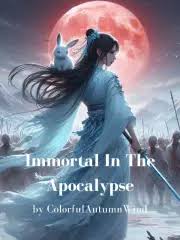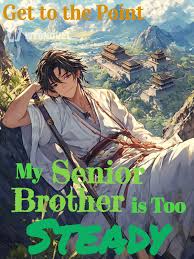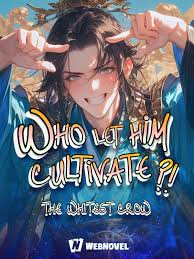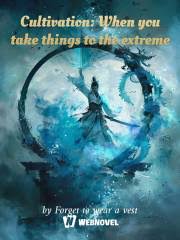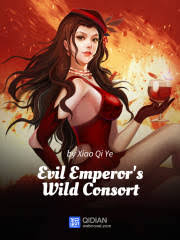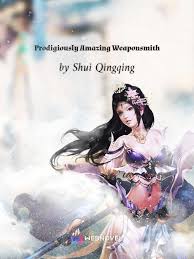The Story in 3 Sentences
Born as a true god burdened by cosmic duty, Zhu Lin suffers a failed heavenly tribulation and plummets into a fractured small world on the brink of total collapse.
She awakens amid the chaos of a zombie apocalypse where one percent of humanity has already turned, forcing her to reconcile immortal cultivation with raw survival instincts in a landscape stripped of order.
Armed with divine insight and ruthless pragmatism, she carves a path through hordes of undead and desperate survivors alike, transforming from fallen deity into the last pillar of a dying civilization.
Why It Stands Out
1. Genre Alchemy Done Right
Immortal in The Apocalypse fuses xianxia’s celestial grandeur with post-apocalyptic grit in a way few novels dare attempt—and even fewer execute cohesively. While most genre blends feel forced, this story treats cultivation not as escapism but as a survival tool in a world where magic alone won’t stop a zombie horde. The tension between Zhu Lin’s godly origins and the mud-and-blood reality of scavenging, fortifying, and leading creates a narrative friction that never lets up.
2. Divine Protagonist, Human Stakes
Unlike typical overpowered transmigrators who breeze through challenges, Zhu Lin’s immortality is both blessing and curse. Her divine nature isolates her, yet her compassion—forged through failure—compels her to protect those she could easily abandon. This duality elevates the stakes: it’s not about leveling up, but about whether divinity can still choose humanity when the world has lost its soul.
3. World-Building Through Collapse
The apocalypse isn’t just backdrop—it’s an active force reshaping cultivation itself. Resources vanish, sects crumble, and spiritual energy becomes erratic. The novel doesn’t just transplant xianxia tropes into a ruined Earth; it interrogates how enlightenment functions when there’s no mountain to retreat to, no sect to shelter you, and every breath might be your last.
Characters That Leave a Mark
There’s Ye Yu – a grounded, loyal survivor whose calm demeanor and tactical mind make her Zhu Lin’s most trusted lieutenant in the early chaos, often bridging the gap between the immortal’s otherworldly perspective and the group’s desperate needs.
You’ll meet Yin Heliu, who carries quiet trauma beneath her competence, her anxiety flaring in high-stress moments yet never breaking her resolve to stand beside Zhu Lin even when fear grips her sweat-slicked hands.
And Jiao Lizhi? They’re the one who returns from a brutal death—torn apart and devoured by zombies—only to wake up reborn with seething regret and a burning need for vengeance, embodying the novel’s theme that second chances in this world come steeped in blood and fury.
The Flaws Fans Debate
Some readers argue the pacing stumbles during mid-novel downtime, where interpersonal dynamics occasionally stall the momentum of survival and cultivation progression.
Others note that while Zhu Lin’s power is narratively justified, her near-invincibility in later chapters risks diminishing tension, making threats feel less credible.
A recurring critique points to underdeveloped secondary factions—rival survivor groups or emerging cults—that vanish as quickly as they appear, leaving world-building threads unresolved.
Must-Experience Arcs
Ch. 1–30: The Fall and the First Tide – Zhu Lin crashes into a world already unraveling, witnessing the initial zombie outbreak and establishing her first sanctuary while grappling with her diminished divine connection.
Ch. 120–180: The Fractured Sects – As old cultivation powers attempt to reassert control, Zhu Lin confronts corrupted immortals and rogue disciples, revealing how the apocalypse has twisted spiritual traditions into tools of domination.
Ch. 300–339: The Last Elixir – In the final stretch, Zhu Lin races to synthesize an immortality elixir not for herself, but to stabilize the dying world’s core, culminating in a sacrifice that redefines what it means to be a true god.
Killer Quotes
“Even gods bleed when the world forgets how to hope.”
“To cultivate in hell is not to escape it—but to plant gardens in its cracks.”
“Immortality means nothing if you have no one left to remember why you lived.”
Cultural Impact
Readers on Webnovel consistently rank it among the top genre-blending fantasies, praising its “unique mix of xianxia and apocalypse” as refreshingly bold.
Fan discussions often highlight Zhu Lin as a rare female immortal protagonist who wields power without losing emotional depth, sparking debates about gender roles in cultivation fiction.
The novel’s premise—divinity meeting doomsday—has inspired fan art depicting Zhu Lin standing atop ruined skyscrapers, robes fluttering amid zombie tides, symbolizing resilience in the face of total collapse.
Final Verdict
Start Here If You Want:
A female-led xianxia where power doesn’t erase vulnerability.
Apocalyptic survival with magical realism woven into every bullet and beast.
A completed story that delivers a satisfying, emotionally resonant ending without cliffhangers.
Study If You Love:
Narrative experiments that merge Eastern cultivation philosophy with Western end-of-world tropes.
Character arcs where godhood is tested not by strength, but by choice.
World-building that evolves organically as society collapses and rebuilds in fragments.
Avoid If You Prefer:
Slow-burn romance subplots—this novel prioritizes survival and sovereignty over love triangles.
Traditional cultivation settings with sect politics and tournament arcs—here, the arena is a zombie-infested wasteland.
Protagonists who remain morally ambiguous—Zhu Lin’s core is unwaveringly protective, even when her methods are severe.
